-
 +23 +10
+23 +10This tiny supercomputer is all the rage
To companies grappling with complex data projects powered by artificial intelligence, a system that Nvidia calls an “AI supercomputer in a box” is a welcome development. Early customers of Nvidia’s DGX-1, which combines machine-learning software with eight of the chip maker’s highest-end graphics processing units (GPUs), say the system lets them train their analytical models faster, enables greater experimentation, and could facilitate breakthroughs in science, health care, and financial services.
-
 +5 +2
+5 +2The Imaginary Kingdom of Aurullia – Interpretation of Mandalay fractal by Subblue
The Aurullia series are Tom Beddard's interpretation of a fractal formula called Mandalay, a specific type of Mandelbox with additional parameters that allow scaling of the folding on individual axes, either in parallel or one after.
-
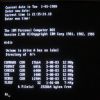 +23 +6
+23 +6Follow-up: MS-DOS lives on after all
Microsoft wants to make it clear that the last bits of MS-DOS, cmd.exe, aren’t going away.
-
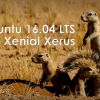 +9 +2
+9 +2Ubuntu Prepping Its 16.04 "Rolling HWE Kernel"
Similar to past Ubuntu LTS (Long Term Support) releases, Ubuntu 16.04.2 and beyond will feature hardware enablement kernels back-ported from newer Ubuntu releases in order to allow new hardware to work on these older LTS releases, but now the Xenial Xerus is switching to a concept of a "rolling HWE kernel."
-
 +25 +3
+25 +3Intel is laying off a major portion of its wearables group
According to sources close to the company, Intel is about to step back from wearables in a big way. In 2014, the company purchased Basis, a little-known producer of some truly excellent fitness watches. The acquisition was clearly a piece of a much larger puzzle for Intel, as it folded the brand into NDG — the New Devices Group — a new wing designed to make a big play for the booming wearables market, while hitting back against rival chipmaker, Qualcomm.
-
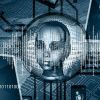 +15 +4
+15 +4AI Algorithm Surpasses What it Was Taught by Humans
U of T Engineering researchers Wenzhi Guo (ECE MASc 1T5) and Parham Aarabi (ECE) have designed a new machine learning algorithm that may soon enable your smartphone to give you an honest answer based on logic.
-
 +5 +2
+5 +2“Let us Calculate!”: Leibniz, Llull, and the Computational Imagination
Three hundred years after the death of Gottfried Wilhelm Leibniz and seven hundred years after the birth of Ramon Llull, Jonathan Gray looks at how their early visions of computation and the “combinatorial art” speak to our own age of data, algorithms, and artificial intelligence.
-
 +22 +5
+22 +5What Sonic Black Holes Say About Real Ones
Can a fluid analogue of a black hole point physicists toward the theory of quantum gravity, or is it a red herring? By Natalie Wolchover.
-
How-to0 +1
The Next Challenge for Big Data: Geo-Distributed Architectures
Organizations need to develop skills and technology to manage Big Data operations across multiple data centers, likely across large geographic areas.
-
 +31 +6
+31 +6Apple is now officially a dongle company that happens to make smartphones and computers.
Apple may have introduced new MacBook Pros last week, but 2016 -- and most of the past few years, if we're being honest -- have been all about the dongles.
-
 -2 +1
-2 +1Autoscaling: How the Cloud Provides a Tremendous Boost
If you are looking to transition some or all of your IT infrastructure to the cloud, one advantage that may help persuade people to get on board is the ability to use autoscaling. With autoscaling, you can provide a real boost to your website or web
-
 +20 +1
+20 +1Apple just told the world it has no idea who the Mac is for
To me, the event last night was Apple trying to remind the world it cares about the Mac, but more than anything else the undertone was this: Apple only cares about the Mac when it’s convenient, but even then, it’s obviously not thinking that hard about the impact it has. By Owen Williams.
-
 +28 +5
+28 +5Tech Support Scams Are Getting More Sophisticated
Scammers selling bogus tech support services have moved from cold calls to targeted pop-ups and malware, according to security researchers.
-
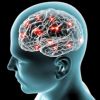 +21 +5
+21 +5There’s a way to turn almost any object into a computer – and it could cause shockwaves in AI
Could reservoir computing be a future alternative to silicon chips? By Mark Douthwaite and Matt Dale.
-
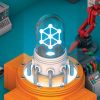 +35 +4
+35 +4Google's AI can now learn from its own memory independently
The DeepMind artificial intelligence (AI) being developed by Google's parent company, Alphabet, can now intelligently build on what's already inside its memory, the system's programmers have announced. Their new hybrid system – called a Differential Neural Computer (DNC) – pairs a neural network with the vast data storage of conventional computers, and the AI is smart enough to navigate and learn from this external data bank.
-
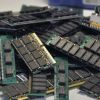 +29 +7
+29 +7Thanks for the memory: How cheap RAM changes computing
RAM (random access memory) is a component of every computer system, from tiny embedded controllers to enterprise servers. In the form of SRAM (static RAM) or DRAM (dynamic RAM), it’s where data is held temporarily while some kind of processor operates on it. But as the price of RAM falls, the model of shuttling data to and from big persistent storage and RAM may no longer hold. RAM is highly susceptible to market fluctuations, but the long-term price trend is steadily downward. Historically, as recently as 2000 a gigabyte of memory cost over $1,000 (£800 in those days); today, it’s just under $5 (~£5).
-
 +15 +4
+15 +4How to Cut Cake Fairly and Finally Eat It Too
Computer scientists have come up with a bounded algorithm that can fairly divide a cake among any number of people. By Erica Klarreich.
-
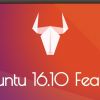 +2 +1
+2 +17 Best Features Of Ubuntu 16.10 Yakkety Yak
The latest offering from Canonical is the Ubuntu 16.10 Yakkety Yak. Ubuntu 16.10 features include the developer preview of the Unity 8 graphical shell and improvement to the Nautilus file browser.
-
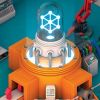 +2 +1
+2 +1Differentiable neural computers
In a study in Nature, we introduce a form of memory-augmented neural network called a differentiable neural computer, and show that it can learn to use its memory to answer questions about complex, structured data, including artificially generated stories, family trees, and even a map of the London Underground. We also show that it can solve a block puzzle game using reinforcement learning.
-
 +4 +1
+4 +1Ubuntu 16.10 Provides Incremental Linux Desktop Improvements
Canonical is set to release the next version of Ubuntu Linux. What improvements can we expect in thise latest iteration of the OS, named Yakkety Yak?
Submit a link
Start a discussion




















